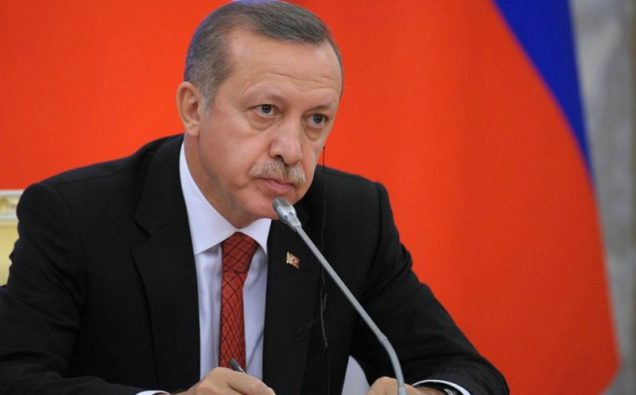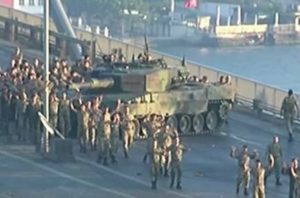
Turkey was still reeling from chaos of a thwarted military coup and violence, when President Recep Tayyip Erdogan appeared in public to calm his bewildered nation Saturday morning.
The overnight dramatic event plunged the NATO and US ally into a political crisis as civilian and uniformed supporters of Erdogan fought with the Turkish military to wrest control of the country.
The death toll in violence mounted to 265 while scores of others sustained injuries in scuffles and pitched battles for control of Ankara, and other major cities.
More than 100 people linked to the failed coup were arrested, and confusions persisted as to who was in charge of the country with reports of violence including bombing of the parliament.
The Erdogan government equated the attempted coup to terrorism, and vowed to treat the plotters sternly.
The chaos in Turkey has heightened the specter of instability across the Middle East, which is already mired in conflicts ts raging in Iraq, Syria and Yemen.
Turkey has a history of coup d’etats but the bloody attempt by a faction of the Turkish forces spells further trouble for Ankara, which is already facing ISIS terror attacks including the bombing on Istanbul airport last month and on the other hand grappling with Kurdish fighters.
But Erdogan has also made many political enemies by his authoritarian policies including measures that impinge on the freedom of expression and a free Press. The ruling Justice and Development Party (AKP) follows conservative democracy.
The White House said late Saturday evening that President Barack Obama spoke by phone with Secretary of State John Kerry to discuss the events in Turkey.
“The President and Secretary agreed that all parties in Turkey should support the democratically-elected Government of Turkey, show restraint, and avoid any violence or bloodshed.”
The State Department will continue to focus on the safety and security of U.S. citizens in Turkey, Kerry pledged.














